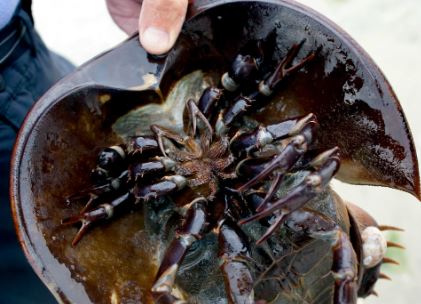
The researchers, from the University of Leicester located in England, found that even slight damage to the leaves in salad bags released juices that could help promote the proliferation of Salmonella bacteria. The juices released by damaged leafy greens also boosted the bacteria's ability to create biofilm. Biofilm tightly clings to the surface it covers, and makes it difficult to remove the bacteria from whatever it's on. The researchers noted this makes it especially difficult to wash the bacteria off of produce.
Primrose Freestone, an associate professor of Clinical Microbiology and co-author of the study, noted that most salad greens are first exposed to Salmonella bacteria in the fields in which they are grown, often via insects, bird droppings or manure. Freestone also commented that prepackaged salads are a common feature in supermarkets, and are sometimes used in the fast food industry, as well as by airlines. However, she points out, few studies had examined how salmonella behaves in these products.
"We wanted to investigate what happens to salmonella in a bag of salad to better understand the potential risks to consumers and inform future research on reducing attachment of this pathogen to salad leaves," Freestone said in a press release. She also stated, "This study is part of our ongoing research into ways to reduce the risk of [Salmonella] persisting and growing when it is present in bagged salad."
In 2013, Professor Hugh Pennington, emeritus professor of bacteriology at the University of Aberdeen, commented on the potential dangers of bagged salad and similar items. Professor Pennington noted that in some ways, eating a burger is actually safer than a salad. Many types of pathogenic bacterial species can only be killed through heat or strong detergents -- not just water. "You can only make vegetables safe by cooking and you can't obviously do that with salad," Pennington stated.
Professor Pennington went on to say, "These bugs are very good at clinging on to salad and the risk from cryptosporidium, salmonella and listeria is very real. I would advise people to thoroughly wash salad even when it says it has been washed and is ready to eat."
While bagged salads are a convenient way to get in your daily dose of greens, there are many other drawbacks to them. In addition to being vectors for disease, much of the greens found in bagged salads are old. Often, what you are getting when you pick it up from the store is shredded greens that are up to two weeks old already. The greens are not going to taste as good, and if there were bacteria living on those greens -- they'll surely have multiplied by then.
Bagged salads also waste water. That triple-washing and rinsing doesn't come without a huge environmental price tag. If these salads were being washed and prepped in the Northeast, perhaps it wouldn't be quite so bad. However, most lettuce, for example, is produced in areas like California and Arizona, where water is scarce and waste should be avoided. Prepackaged salads also require more mechanical prep work. Processing facilities require major utilities to run, and at the end of the day -- all that lettuce is going into more plastic. Many consumers opt to skip plastic bags, and put their produce in cloth bags while they shop -- which can help to eliminate the need of bags altogether.
Another drawback to prepackaged salads is the chemicals they come with. While all those sprays may not guarantee your food is bacteria-free, you can be sure that there's a good chance trace amounts will still be present when you put that salad on a plate.
Perhaps it would be best to just buy whole, organic produce and chop it up yourself -- or better yet, grow your own!
Sources:
Please contact us for more information.























